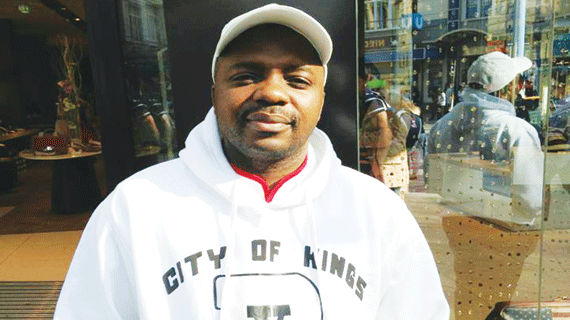
TELEVISION is probably the most popular form and means of entertainment for Zimbabwean families.
When some of us grew up the magic box was a rarity. Only one well-up family owned one and as kids we were invited by friends to watch some of our favourite fiction films like MacGyver, The Bionic Woman, Six Million Dollar Man and The A Team, among others. You had to bath before running next door to watch television and you had to treat the neighbour’s kid well at the playground lest you lose your privilege to visit his or her place to watch favourite films.
Times have changed and almost every home now owns the magic screen. My concern this week is not about whether one has access to television, but it is about responsible viewing.
Many a parent and child guardian are so protective when it comes to children in their custody. By 6pm they want them to be home and have gates locked to save them from the evils of darkness. They do not allow their children to roam the streets at night and will not allow them to go to nightspots and clubs until they reach a certain legal age. Fair enough, for all I know Zimbabwe arguably boasts probably the strictest and conservative parents in the world.
The question I want to pose is bold. Are we as Zimbabweans concerned or even bothered by what our children view on television? How many parents can stand up and say they really take charge of what their children choose to watch and which channels are out of bounds for them? Before or during a television programme an age restriction is displayed. I doubt if most of us adhere to such restrictions.
I deliberately sent a message around my friends on WhatsApp asking them what PGA 13 means and the responses I got were shocking. Some did not even understand the abbreviation (parental guidance advised), let alone what it implies.
Truth be told our children follow TV shows better than we do. They know more about what is happening on Big Brother Mzansi than we do. They even update us on all the drama and dirt that occurs in our absence.
They are in touch with Generations, Isibaya and Zabalaza soapies, among others. Ironically, all these soapies are PGA-indicated. We never bother to adhere to these restrictions and at times we are far too engrossed in the action to notice that we are watching, all the kissing, the romance, the violence and bad language next to our six and 10-year-olds. Is that not a form of child abuse?
- Chamisa under fire over US$120K donation
- Mavhunga puts DeMbare into Chibuku quarterfinals
- Pension funds bet on Cabora Bassa oilfields
- Councils defy govt fire tender directive
Keep Reading
One brush cannot paint all parents red. The truth is that there are some who really try to prevent their children from watching sensitive and child-damaging programmes. The problem though is that when we leave for work, they — together with clueless maids — catch up on the repeats.
Few people use the parental security options offered on decoders and television sets.
In some cases parents are willing to prevent children from watching, but then are overcome by “parental love and sympathy”. They tend to feel that in order to show love to children they have to obey and give in to all their demands and wishes. On the contrary, children are malleable.
They become what they watch and television is such a huge influence of social behaviour. That is why we read about children breaking each other’s necks trying out skills from wrestling shows like WWE.
I know of children who have stabbed and even gunned down peers imitating their heroes in movies. Children could grow up to be what they see, watch and experience. For the same reasons that we limit and control what they eat, what time they are home and the places they go to, we should also take charge of what they watch on television.
- I know the National Arts Merit Awards (Namas) are becoming an old bone to keep chewing on, but I could not resist to react to a publication in one of our local newspapers.
The journalist lambasted musician Jeys Marabini for losing out on an award and made accusations bordering on regionalism.
He claimed Jeys had forgotten about his legion of fans in Zimbabwe at the expense of international expeditions.
He claimed Jeys had not released an album since 2011 when in 2013 Jeys released the album Isilo.
My call is a humble one. Dear editors, please deliver us from uninformed journalists who think that by creating controversy and making very sensitive claims about artistes’ shows they are doing a good job.
We are not artistes to win Namas. This is our chosen career. We are not in competition. Nama owes us nothing and neither do we.
Follow me on twitter @NkueInnoeDube










